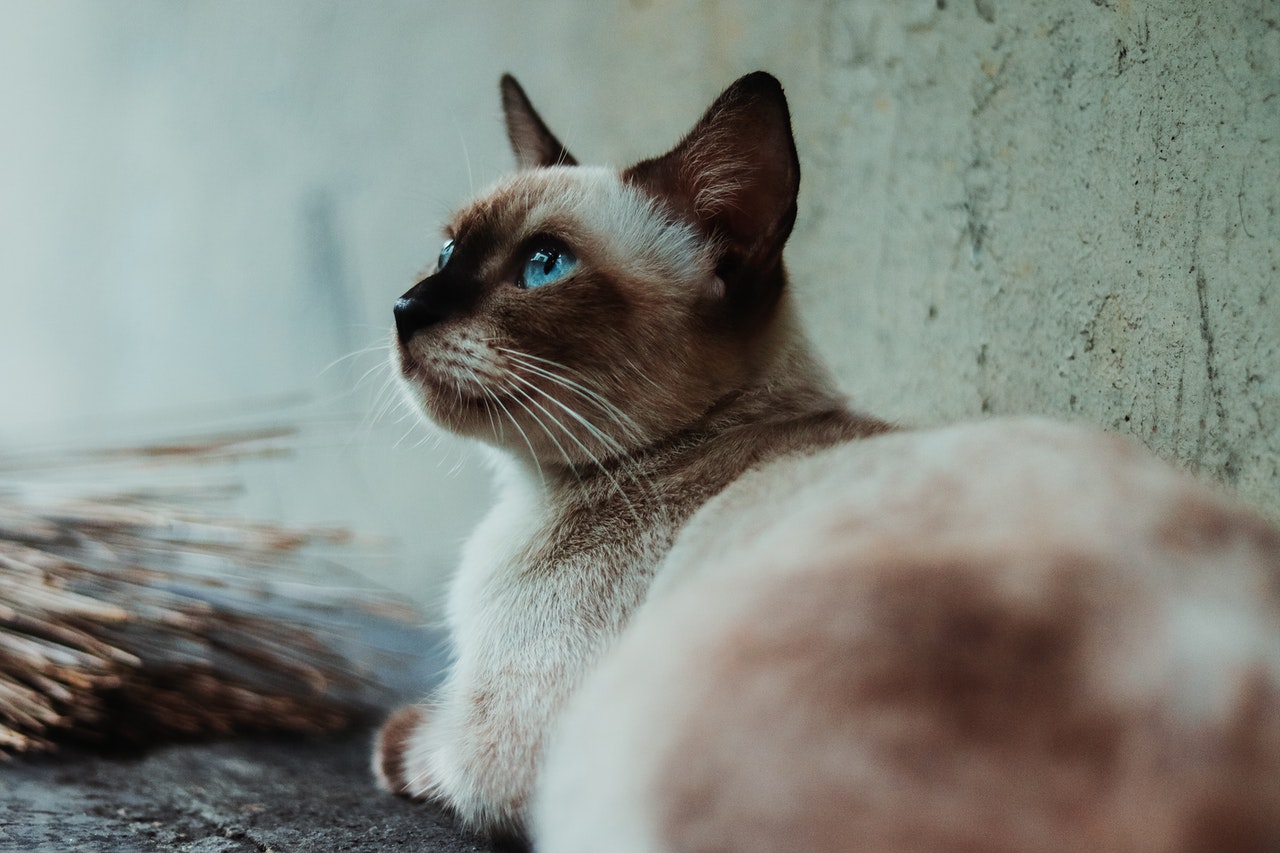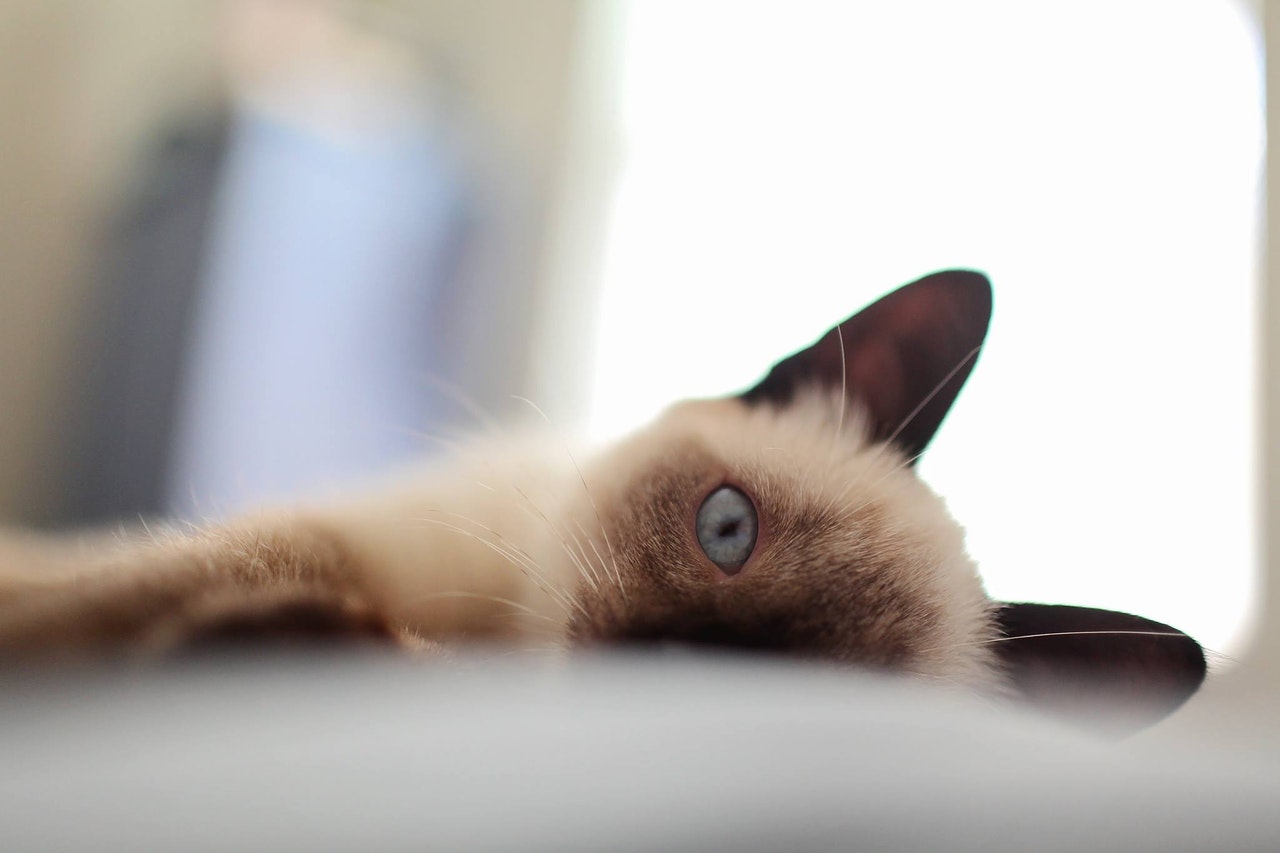Few cat breeds are as instantly recognizable as Siamese cats, but with their notoriety comes a reputation for being a little, well, snobby. After all, the feisty felines in Disney’s Lady and the Tramp famously sing, “We are Siamese if you please; we are Siamese if you don’t please.” But pet parents of the breed — affectionately known as meezers by breed aficionados — claim that Siamese cats have an unwarranted bad rep.
So which is it? Did the folks at Disney unintentionally mislead us for the sake of an annoyingly catchy song? Are these stunning cats as snooty as we’ve been led to believe? Or are Siamese cats friendly? It’s time to find out the truth about one of the world’s oldest breeds.

The history of Siamese cats
While no one knows exactly when the Siamese cat was first domesticated, we do know the breed has been around since the 14th century thanks to a note in a Thai manuscript. Initially, only the royal family of Thailand (then known as Siam) could own one of these beauties. Legend has it that many modern-day Siamese cats have crossed eyes because the breed was originally tasked with guarding expensive vases–and even the king’s throne. According to the legend, these clever kitties stared at the objects they were tasked with protecting with such intensity that their eyes became crossed.
Siamese cat appearance
If you want a cat guaranteed to grab attention, you’d be hard-pressed to find a better breed than the Siamese. With their stunning blue eyes and distinctive points, the Siamese is a true showstopper. These gorgeous cats come in four color variations: blue point, chocolate point, lilac point, and seal point. But did you know Siamese cats occasionally have stripes?
Once upon a time, a seal point Siamese fell in love with a domestic tabby, and the lynx point Siamese was born. Although the lynx point was initially dismissed as a mixed-breed cat, the Governing Council of the Cat Fancy (GCCF) has officially recognized these striped beauties.
Do Siamese cats like to cuddle?
One of the most affectionate cat breeds in the world, Siamese cats love nothing more than cuddling with their favorite human. In fact, the Siamese cat is so loyal and devoted that the breed has earned a reputation for being dog-like. If you love cats but are worried your feline fur baby will personify the silent and aloof stereotype, a Siamese cat might be the perfect breed for you. Not only are they affectionate, but Siamese cats also love to talk.
Whether your cat is letting you know it’s time for dinner or is chatting simply for attention, Siamese cats are rarely ever silent. However, unlike most cat breeds, your Siamese won’t greet you with the standard “meow.” Their distinctive vocalizations have earned frequent comparisons to a baby’s cry, hence the nickname “meezer.”

Are Siamese cats aggressive?
Unfortunately, not all aspects of the Siamese cat’s reputation can be disproven. As it turns out, the rumors of Siamese aggression are frequently true. But that doesn’t mean your Siamese has to stay that way. Here are a few reasons why your Siamese cat might be acting out, along with some helpful hints on how to nip her behavior in the bud.
Your Siamese is bored
Siamese cats are famously high-strung, energetic cats, but if your fur baby’s daily zoomies become problematic, it could lead to aggression. Although Siamese cats love snuggling with their human family members, this isn’t a sedentary breed. Make sure your fur baby gets plenty of mental and physical stimulation. Cat trees, interactive toys, and scheduled play sessions are essential when you have a Siamese cat.
Your Siamese is feeling anxious
Because Siamese cats form strong bonds with their pet parents, they can sometimes exhibit signs of anxiety, especially separation anxiety. Maintain a stable routine, provide your fur baby with plenty of toys while you’re away from home, and consult your vet if the anxiety becomes severe. Separation anxiety is a known breed issue, and your vet will have helpful advice on how to handle your cat’s anxiety. (Your vet may also prescribe medication to alleviate symptoms.)
Your Siamese has Hyperesthesia Syndrome
Some cats develop hyperesthesia syndrome, which causes increased sensitivity to touch. Sadly, this affectionate breed has a genetic predisposition for the syndrome, making even the gentlest of chin scratches uncomfortable. If your Siamese shies away from contact or exhibits signs of self-harm, visit the vet immediately. Medications can help manage this uncomfortable condition.

Highly intelligent, loving, and energetic, the Siamese cat is the perfect cat breed for self-professed “dog people” and cat lovers alike. But don’t believe the rumors: Siamese cats are far from snooty, although they’re famous for being a chatty, opinionated breed. If you’re looking for a constant companion, a Siamese is a fantastic option. In fact, consider adopting two Siamese cats! This breed is happiest when adopted in pairs.
Editors' Recommendations
- How many dog breeds are there, really?
- Is a Belgian Malinois a good family dog? Everything you need to know about this amazing dog breed
- Why is my cat peeing on my bed? The real truth (and how to stop this gross habit)
- 7 affectionate and cute dog breeds for owners who love to cuddle
- All about the incredible greyhound dog




